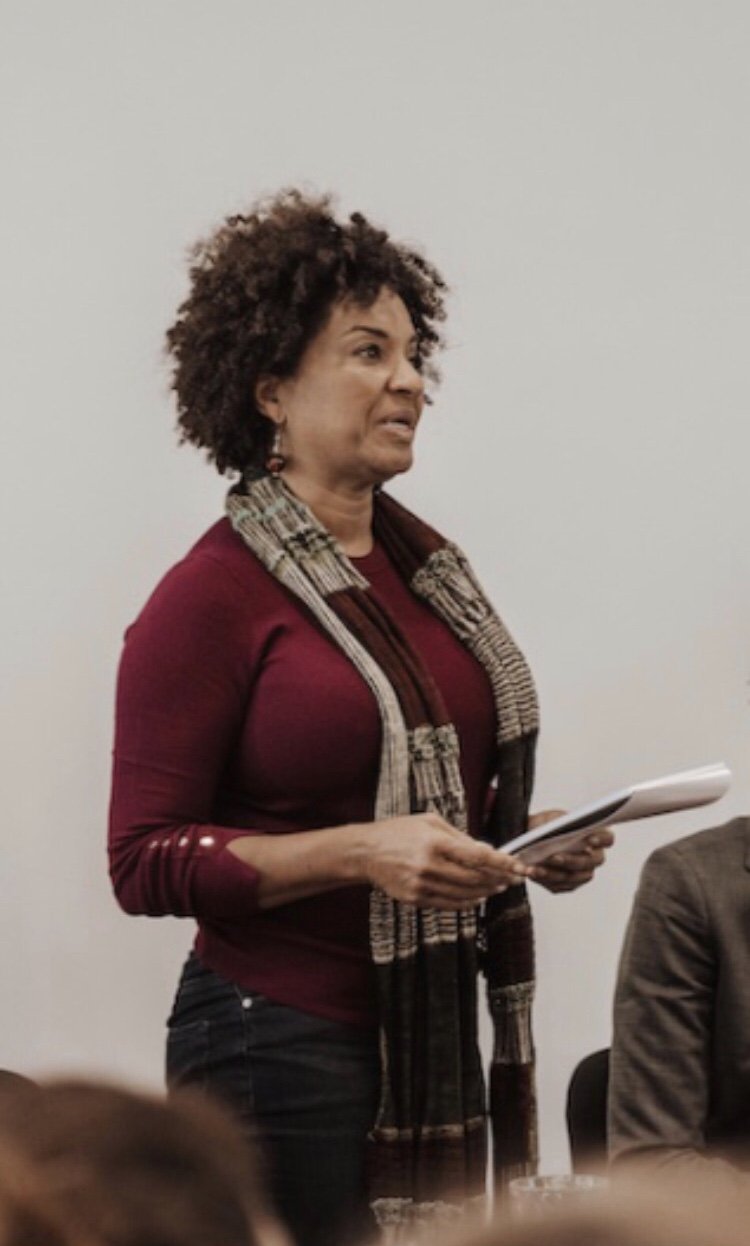What is the most important quality in a leader?
“Is being a leader a choice or a skill set?”
A question posed by Alastair James during the latest Purpose Collective conversation I attended. During the breakout room discussion that followed, someone mentioned how at school some of us were told that you could either be a leader or a follower. It occurred to me in that moment that, as a young person, I never saw myself as a leader because I was way too emotionally reactive and had zero self-confidence.
I grew up in an environment that discriminated against people who look like me. The rejection and the feeling of not belonging chipped at my sense of identity, and self-worth. I did not have the confidence to speak up or share my creative thoughts and ideas for fear of being ridiculed. In addition, my need to belong and feel accepted meant that my focus was on meeting the needs of others and neglecting my own. This environment did not offer me safety to be me or to make mistakes. I bottled up my emotions and tried hard to adapt to the expectations of others around me and in that process I temporarily lost myself.
“Sometimes, it is only in the getting lost that we can find our way back home.”
-Jeanette LeBlanc, speaker, coach & mentor
When you grow up in a challenging environment you instinctively develop patterns of thinking and behaving to survive that harsh environment. You carry those behaviours unconsciously into adulthood and they become part of your skill set and character traits. However what served you so well as a child can become an obstacle in your adult life. For example in my case, caring for others is great, however not so great when it is at the expense of neglecting my own self-care.
To be able to meet the needs of others I developed great powers of observation and an ability to read people and anticipate what they might do next. That ensured my safety and protection in the past. By being discriminated against and ‘othered' , I became someone who can empathise, show compassion and understanding towards people who have been viewed or treated as intrinsically different. Instead of being angry and bitter, I was curious about people’s behaviours including my own. In my curiosity I often asked myself the question “How” instead of “Why”. How do we become the way we are? How do we develop certain ways of thinking, feeling and behaving? What are the factors in our environment that influence this? More importantly, is it possible for people to change, if so, then how? The fact that I survived childhood traumas also demonstrates a degree of resilience and perseverance. I was not fully aware that those qualities were my signature strengths when it comes to leadership. As a coach I observe a similar lack of awareness in some of the clients I work with. I make sure that our work together re-connects them with those forgotten inner strengths.
Many years later when I started my career as a pharmacist, my hard work paid off and I got promoted. Promotion thrust me in leadership positions and my emotional and mental struggles made this role difficult. I inevitably made mistakes along the way, which, in some cases, deepened the wounds from childhood.
In my thirties I finally got the coaching and counselling I so needed and desired, and that brought about a wonderful transformation within me and outside of me. The counselling addressed a lot of the distorted decisions I made about myself and others as a result of childhood trauma, and that positively impacted my role as a leader.
✨ My self-esteem and confidence grew.
✨ I became more responsive instead of being reactive.
✨ The care I gave to my emotional and mental well-being meant, that as a leader, I am also able to convey to members of the team this same important message.
✨ It meant caring for others without neglecting my own self-care.
✨ It meant being open and curious about what I can learn when mistakes are made, instead of being hard and unforgiving of myself.
✨ It meant having the ability to be honest without being hurtful, to listen to feedback without feeling shame and rejection, and to create a safe environment where we can all enjoy together the journey of learning and discovery.
Most importantly I found my voice and dared to speak up and share my thoughts and ideas especially on the subject of emotional and mental health. My vulnerability became my strength. We can’t shine bright without acknowledging that we all do have a dark side that is in need of change.
“I raise up my voice-not so I can shout but so that those without a voice can be heard...we cannot succeed when half of us are held back.”
―Malala Yousafzai, an activist for female education and a Nobel Peace Prize laureate
Taking care of my mental and emotional health was a game changer for me on the personal and professional front. Nowadays I find myself again in a leadership role in my work with ACCESS, alongside my coaching practice, at The Hague International Centre, where I lead a team of amazing, talented and skilled individuals, navigating their own personal challenges as well as supporting internationals to have a smooth transition into the Netherlands. We work well together as a team despite our cultural, religious, gender, and age differences. Perhaps that is what makes us so suited at providing a service to a similar diverse audience.
I think that we always have a choice when it comes to leadership. We can choose what kind of leader we want to be and, with that in mind, take the necessary steps to acquire the skills needed to be that leader.
I believe that there is a leader in every one of us. We are influencing someone somewhere all of the time. This is not the case only at work but at home too. As a parent you are the shining example for your kids. What you say and do will form a big part of their life values. Therefore we all have the responsibility to personally develop ourselves so we become a healthy example to be followed. This may mean doing the work necessary to heal our wounds, understand how the past has impacted our personality and behaviour and learn the tools necessary to grow ourselves up again into leaders that can demonstrate the qualities that Alastair shared with us: care, courage, curiosity, collaboration, candour and consistency. To lead effectively it is paramount that you first take care of your emotional and mental health so you are leading through responding to the current reality and not to wounds and triggers from your past.
To lead when thrust in a leadership position might not be a conscious choice but how to lead is!

